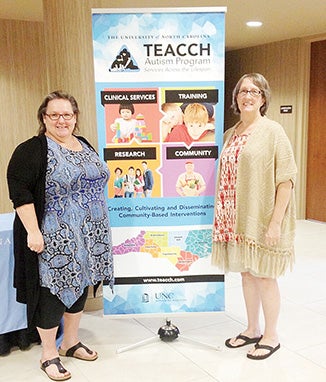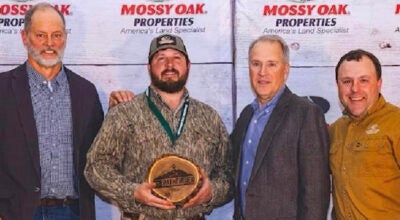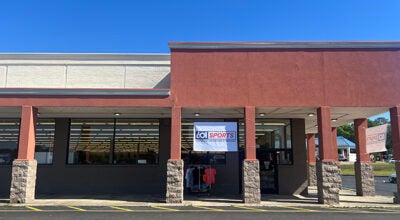Teachers learn about autism at conference
Published 10:00 am Thursday, July 28, 2016
It was the brainchild of Brookhaven Junior Auxiliary lifetime members Glenda Hux and Shannon Miller to fund a trip for Lincoln County School District teachers Cindy Schroder and Vicky Smith to a conference on autism hosted by the University of North Carolina.
Hux was president of JA during the organization’s 60th year, and she did a lot of research in the process of putting together a ceremony to celebrate the club’s anniversary.

Photo submitted/Cindy Schroder, of Loyd Star, and Vicky Smith, of West Lincoln, meet at a TEACH conference in North Carolina Tuesday, where they learn about teaching techniques for children with autism spectrum disorder.
“I found out, our charter members were very involved in the special needs community,” she said.
An occupational therapist who has a child with special needs herself, Hux said she is personally aware of the needs in the community.
“I really wanted to help,” she said.
JA and the Silver Cross Foundation provided funding for the trip.
About one in 68 children are diagnosed with autism spectrum disorder, according to the Centers for Disease Control. Schroder, the elementary special services teacher at Loyd Star Attendance Center, said each student needs an education tailored to their needs.
“The parents are a vital part in that,” she said. “The communication between the teacher and parent becomes very important to know how they’re functioning.”
Schroder said one of her goals is to capitalize on the child’s interests to engage them in the learning process.
“We want to involve the parents as much as possible in what they’re learning here at school, and also use what they’re learning at school as a reinforcement in the home,” she said. “So it’s a partnership to help these children learn.”
Schroder said the conference was well worth the trip.
“We were able to learn different techniques and strategies for teaching children lifelong skills,” she said.
Part of that process was learning how to use the environment to facilitate learning in children with autism.
Teaching special education can be a rewarding experience, according to Schroder.
“Special education teachers get to know their parents and children very well,” she said. “We usually follow children for several years, so we get to develop a very close relationship with the families of these children.”





